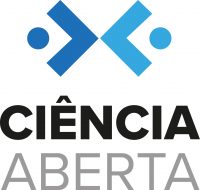A Teoria da Complexidade de Edgar Morin nos Estudos de Turismo
DOI:
https://doi.org/10.18226/21789061.v16i4p1054Palavras-chave:
Teoria da Complexidade, Edgar Morin, Teoria no Turismo, Revisão Integrativa da LiteraturaResumo
O campo do Turismo é complexo, o que tem impulsionado os pesquisadores a adotarem abordagens que compreendam tal complexidade de seus fenômenos. Dentre as diversas teorias propostas, a Teoria da Complexidade (Morin, 2011) tem se destacado como uma abordagem relevante. Nesse contexto, este artigo investigou como a Teoria da Complexidade de Edgar Morin tem contribuído para os estudos de Turismo. Para isso, foi conduzida uma pesquisa exploratória e qualitativa, com foco na revisão integrativa da literatura acerca do conceito, uso, metodologia, principais contribuições, limitações e obras da Teoria da Complexidade nas pesquisas de Turismo. Então, foi realizada busca em quatro bases de dados estrangeiras e nacionais. A investigação revelou que a Teoria da Complexidade tem permitido avanços na compreensão do Turismo como um sistema complexo, possibilitando investigações sobre as relações entre objetos, ambientes e contextos, especialmente no que diz respeito à interdisciplinaridade, sustentabilidade, autenticidade e planejamento de destinos. No entanto, é importante ressaltar que alguns cuidados devem ser tomados para que se evite inconsistências, como a delimitação e exploração adequadas dos conceitos, coerência teórica e metodológica e o cuidado com vícios positivistas na escrita científica.
Downloads
Publicado
Como Citar
Edição
Seção
Licença
Autores que publicam nesta revista concordam com os seguintes termos:
Os Autores mantém os direitos autorais e concedem à revista o direito de primeira publicação, com o trabalho simultaneamente licenciado sob a Creative Commons Attribution License que permitindo o compartilhamento do trabalho com reconhecimento da autoria do trabalho e publicação inicial nesta revista.
Autores têm autorização para assumir contratos adicionais separadamente, para distribuição não-exclusiva da versão do trabalho publicada nesta revista (ex.: publicar em repositório institucional ou como capítulo de livro), com reconhecimento de autoria e publicação inicial nesta revista.
Autores têm permissão e são estimulados a publicar e distribuir seu trabalho online (ex.: em repositórios institucionais ou na sua página pessoal) a qualquer ponto antes ou durante o processo editorial, já que isso pode gerar alterações produtivas, bem como aumentar o impacto e a citação do trabalho publicado (Veja O Efeito do Acesso Livre).








